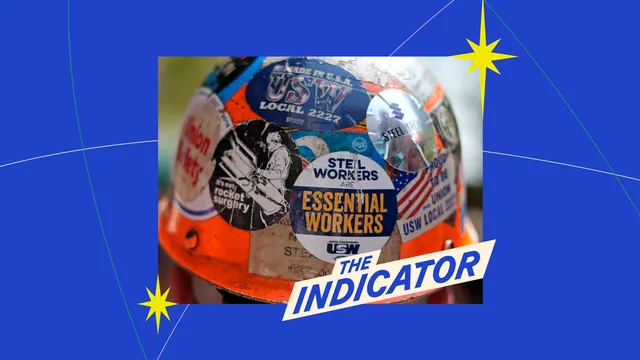
Nippon Steel"s bid to buy US Steel amid election season tensions
2024-09-16 00:00- Nippon Steel aims to acquire US Steel, focusing on job preservation in America.
- Economists support the acquisition, suggesting it could benefit the U.S. economy.
- Political opposition from presidential candidates highlights the tension between economic rationale and political pressures.
Express your sentiment!
Insights
Nippon Steel is pursuing a bid to acquire US Steel, emphasizing its commitment to preserving jobs in America. This move has garnered attention from economists who argue that the acquisition could be beneficial for the U.S. economy. However, the political landscape complicates the situation, as U.S. presidential candidates are expressing opposition to the deal, particularly in key battleground states like Pennsylvania. The interplay between economic rationale and political pressures highlights the complexities of decision-making in an election season. The bid comes at a time when the U.S. economy is under scrutiny, and the implications of foreign ownership of American companies are a hot topic. Economists suggest that Nippon Steel's intentions align with maintaining employment levels, which could be advantageous for local economies. Yet, the political response indicates a growing concern over foreign investments in critical industries, especially in the context of national security and economic independence. As the election season progresses, the dynamics between economic interests and political agendas are becoming increasingly pronounced. Candidates are leveraging the situation to appeal to voters who may be wary of foreign influence in domestic industries. This scenario raises questions about the extent to which political considerations can distort economic realities and the potential consequences for both companies and workers. Ultimately, the outcome of Nippon Steel's bid will depend not only on economic factors but also on the political climate and public sentiment. The situation serves as a case study of how economic decisions can be influenced by the political landscape, particularly during an election period.
Contexts
Nippon Steel's bid to acquire US Steel comes amid heightened tensions in the political landscape, particularly with the upcoming elections. This situation is compounded by ongoing discussions about energy policies and environmental concerns, as highlighted by a recent lawsuit filed by the Confederated Tribes of Coos, Lower Umpqua and Siuslaw Indians against the U.S. government. The tribe is challenging an offshore wind energy auction, arguing that the Bureau of Ocean Energy Management's environmental analysis was inadequate, failing to address the potential impacts on marine life and cultural resources. The lawsuit reflects broader concerns regarding the balance between energy development and the preservation of indigenous rights and environmental integrity. As the U.S. government moves forward with renewable energy initiatives, the implications for local communities and ecosystems are increasingly scrutinized. This context of environmental activism and legal challenges may influence public perception and regulatory responses to corporate acquisitions like that of Nippon Steel's interest in US Steel. The intersection of corporate interests, environmental stewardship, and indigenous rights is particularly salient in this election season, where energy policies are likely to be a focal point for voters. The outcome of these developments could have significant ramifications for both the steel industry and the future of renewable energy projects in the U.S.